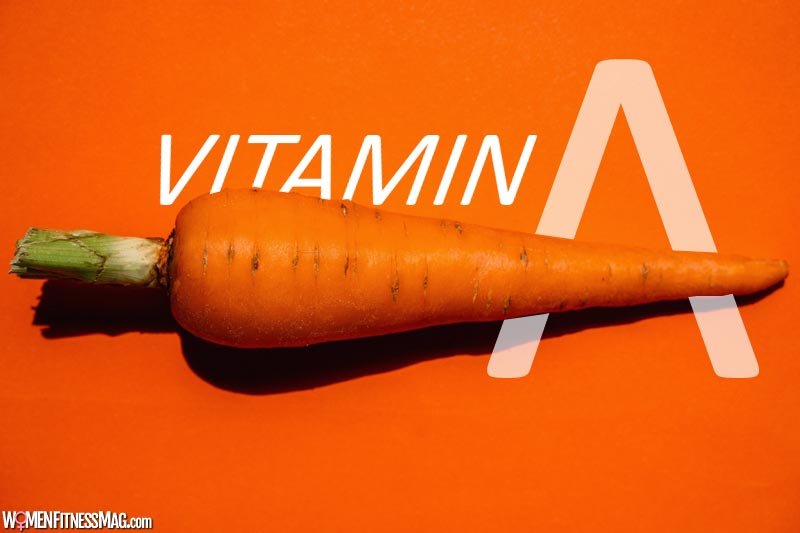Understanding Vitamin A : Vitamin A is necessary for healthy vision, immune system function, and the on-going, healthy growing of cells. It is not a new nutrient, yet the market has been crowded with various, not so healthy options in recent years. This might be causing confusion for the regular buyer. You might’ve not yet realized its incredible powers or know that it should be included in your regular body care routine.
This is why this article discusses how vitamin A “began,” how it works, why you should use it, and how to choose the option that works for you.
How did vitamin A begin?
Did you know that vitamin A was the first vitamin to ever be named? That’s why it includes the first letter of the alphabet, the letter ‘A.’ This vitamin promotes white blood cell formation and activity, helps your bones remodel, maintains healthy endothelium cells (those found on the body’s internal surfaces), and actively manages cell expenditure and division, which is essential for your reproductive system.
One of the main forms of vitamin A is primarily found in animal products and retinoids, while the second type, also called beta-carotene, comes strictly from plants. According to the American Health Association dietary guidelines, people should get their antioxidants (including beta-carotene) from fruits, veggies, and other whole supplements.
Why do people consume vitamin A?
Check out the most important benefits of consuming vitamin A.
- Prevents night blindness
- Helps with infections, mostly in the throat, abdomen, and chest
- Vitamin A helps with fertility issues
- Can help with delayed growth of children
- Can prevent follicular hyperkeratosis
Retinoids, both topical and oral, are usually prescribed for acne and other skin disorders, such as wrinkles. Oral vitamin A is also used to treat measles and dry eye in patients who are deficient. Vitamin A can also be used to treat a certain kind of leukemia. Many other diseases, such as cancer, cataracts, and HIV, have been studied using vitamin A as a treatment. The findings, however, have been inconclusive.
The majority of people consume an adequate amount of vitamin A through their diets. Vitamin A supplements can be recommended by a doctor to patients who are deficient, argues medical author and Australian Writings specialist, Dan Johnson. Those with such issues (digestive problems, for example) or poor eating habits are more likely to be vitamin A deficient.
Where can I get vitamin A naturally?
You can consume breakfast cereals, dairy products, and any other foods rich in vitamin A to get the necessary quantity in. Most fruits and veggies contain beta-carotene, as I’ve explained above. Here is a short list of products you should be adding to your diet.
- Green veggies such as kale, broccoli, spinach
- Yellow veggies such as sweet potatoes, pumpkin, summer squash, or carrots
- Red bell pepper & tomatoes
- Milk & eggs
- Fortified foods
- Fish oil
- Cantaloupe or mango
Can vitamin A help my skin?
Yes, it definitely can. Here’s how.
- Vitamin A has a developed capacity to help cells. This means it has the ability to stimulate them to behave in a younger, healthier manner, resulting in skin that appears more radiant and leaves you looking younger.
- Vitamin A helps normalize oil production, making your skin look less oily and more balanced, which helps solve problematic skin conditions like acne. Vitamin A also helps normalize pigmentation. It accomplishes this by regulating the activity of tyrosinase, an enzyme involved in producing melanin.
- It stimulates fibroblasts (dermic cells that make collagen) to promote healthy elastin development, which can help your skin look firmer and prettier.
- Vitamin A is a natural moisturizer, which means it helps hydrate the skin, offering it a bright glow. It also helps speed up healing of any kind, reduce breakouts, and boost the immune system of your skin.
- Vitamin A helps you maintain a healthy dermis and epidermis, which are your skin’s top two layers.
Can vitamin A be toxic?
Yes, vitamin A can be toxic when it’s found in overly high amounts in your body. Hypervitaminosis A might be a short-term or long-term problem. Acute toxicity occurs when a substantial amount of vitamin A is consumed too quickly at once, such as a few hours or days. Chronic toxicity means that your body accumulates excessive levels of vitamin A over a lengthy period of time.
Some of the symptoms you might be experimenting include vision abnormalities, pain in your bones, or changing skin. Chronic poisoning can eventually harm your liver and put a strain on your brain.
Author:
Eun Rockwell is a blogger and academic writer from the UK who works with assignment help specialists. She likes trying new subjects and is always focused on proving her worth as a writer in new and challenging writing areas. Her hobbies are reading books and traveling. You can reach her via Twitter @rockwell_eun.
Related Videos about Understanding Vitamin A :
Vitamin A | vitamin A Function | vitamin A metabolism | What happens when vitamin A is deficient?
Vitamin A 🥕 (Retinoids) | All You Need to Know!
What Is Vitamin A – Functions, Benefits Of, Foods High In Vitamin A Per Day And Deficiency
Vitamin A: Introduction – Biochemistry
Vitamin A: Types & Sources || What are Vitamin A rich Foods?
Understanding Vitamin A
vitamin a dosage per day for adults, vitamin a foods, what is vitamin a good for, how much vitamin a per day, too much vitamin a, vitamin a supplements, vitamin e,




